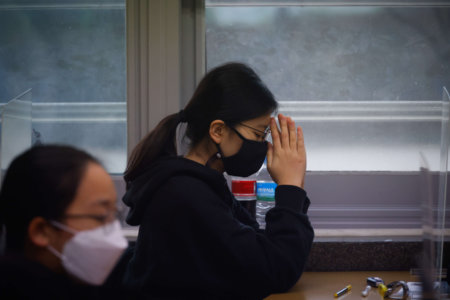
Over twenty years ago, in a small Victorian schoolhouse a stone’s throw from the crashing waves of the Atlantic, my entire life changed when I decided to do the International Baccalaureate (IB). At 15, I had no idea really what I wanted to study, nor what I wanted to do as a career, and I wasn’t entirely too sure what I was actually “good” at. Having previously gone to traditional schools with a mainstream curriculum, being good at school wasn’t particularly difficult. Memorising facts wasn’t hard; anticipating what would be on the next quiz wasn’t rocket science. Somehow, I managed to get by with straight As and yet never really figure out anything I was good at other than “school.”
For the uninitiated, the IB diploma programme was founded in 1968 in Geneva, Switzerland. It was developed after a group of teachers at the International School of Geneva created a standardised, regulatory board for international schools. Ensuring student mobility was at its core — it was devised to provide internationally recognised qualifications for its graduates. These youth were international, mobile, and they needed an education that could be started in Toronto and potentially finished in Tashkent, all without disruption to their coursework.

Like waves shape rocks, the International Baccalaureate benefits students in ways seen and unseen. Source: Fred Tannuau/AFP
Students taking the IB diploma pick six subjects to study, with three or four of them at “higher level” — aka, more coursework and more class time. Students must select one science, one maths, and one second language. There’s a 4,000-word extended essay of research that they must write. There’s a Theory of Knowledge (ToK) class that is required — a sort of introduction into modes of learning and thought. Oh, and there’s also 150 hours of community service. The IB is available to take in English, French or Spanish. At the end of two years, students sit exams, and combined with coursework grades, the extended essay, ToK and community service, they are marked out of a possible 45 points. Getting a full 45 points is — as you can imagine — quite the unprecedented achievement.
Throughout the years, the IB evolved into being something of a badge of honor for the international student community — third culture kids, diplomat progeny, youth who moved with their parents’ jobs. Let out into the world and into thousands of university campuses, we would find each other and eventually the conversation would turn to how you all JUST missed out on that ToK point. A lingua franca — and that was exactly how I qualified my IB diploma: a damn good education, but mostly a language of codes I could use to make friends and make sense of the world wherever I went.

International Baccalaureate benefits are many, including the know-how to spot that one kindred spirit in a crowd of thousands. Source: Oli Scarff/AFP
As Mr. Harding often reminded us in his Thursday and Friday morning back to back double period history lessons — hindsight is 20/20. Unlike the fog of war that plagued the generals we studied making some catastrophically bad decisions, in our classroom we were able to look at events through different lenses, understand the elements that were at play and why events could be read differently. Looking back at what the IB meant to an uncertain teen in the 90s, the social aspect of the diploma has certainly faded. It’s been 15 years since anyone asked me how many points I got on my extended essay — I don’t remember anymore and it doesn’t actually matter.
What time has afforded me is the understanding that the journey of the degree, the learning how to learn, how to see events, how to relate to the world at large and what I liked about it, was really the biggest takeaway. Mobility — that unique selling point that the IB possesses over its more myopic competitors — was certainly valuable. The diploma was like a passport to university: if your papers are in order, requirements met, then it’s all systems go. However, it’s the education and the learning foundations that the IB gave me that ultimately made it possible to succeed in a fast-changing world. Instead of learning for a quiz, I learned really how to think — critically, analytically, globally — and I learned about myself. Languages, history, art — anything with a narrative, no matter how fragmented, was interesting. I learned that I loved physics, and that maybe not everything you love is what you are good at. I learned that weaknesses bring out your strengths, and that success isn’t always the highest grade in the class.
Resilience. Adaptability. Staying curious. These are qualities that the IB encourages because it’s not structured to play to your strongest suit, as much as it asks you to push yourself out of your comfort zone. Think about how we think, and then look at a problem and find solutions. It’s a model that will get applied every day, in any given situation — whether it’s work-related or just understanding the world at large.









